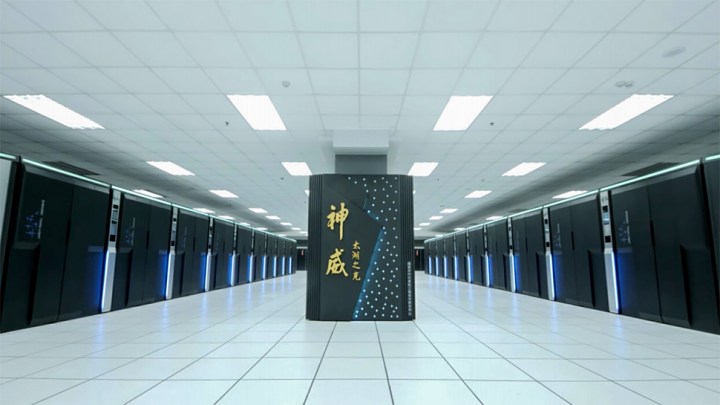
Top500 is the organization behind the list, which was released on June 20 at the 2016 International Supercomputer Conference. The latest iteration marks the first time that China was better represented than the United States, with its 167 supercomputers that made the cut edging out the 165 that are located in the U.S.
A Chinese computer also managed to take the top spot, dethroning the Tianhe-2. That computer had previously dominated the rankings, having placed first on each of the previous six lists to be released, according to a report from Tech Spot.
The new champion is the Sunway TaihuLight, which is notable for using processors designed and constructed in China. The supercomputer recorded a Linpack benchmark of 73 petaflops — which is particularly impressive when compared to the 34 petaflops achieved by the Tianhe-2.
TaihuLight requires 10,649,600 computing cores comprised of 40,960 nodes to draw upon that kind of processing power. The system was developed by China’s National Research Center of Parallel Computer Engineering & Technology, and is installed at the National Supercomputing Center in Wuxi.
The first Top500 list was produced in 1993 for a small conference, and was revisited by its authors a few months later to see how much things had changed. The rate of progress that was observed inspired the bi-annual format that the list retains to this day; in the six months between the last ranking and the current one, the combined performance of all systems has grown from 420 petaflops to 566 petaflops.
China has been catching up to the U.S. in the rankings for some time, but it will certainly be interesting to see whether the dynamic between the two countries changes now that their roles are reversed. Given the length of time it takes to develop and build a system of this scale, supercomputers set to tip the balance years down the line could already be in development.


